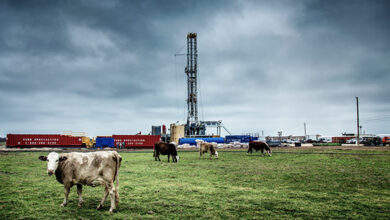Panel: Knowledge sharing, collaboration required to push reduction, awareness of dropped object incidents
By Astrid Wynne, Contributing Editor

Information sharing and cooperation are paramount to improving dropped object prevention, panelists said at the 2015 IADC Drilling HSE&T Asia Pacific Conference on 11 March in Kuala Lumpur. In fact, an increased number of reported drops incidents could even be interpreted as a positive sign in the industry’s efforts to mitigate this high-potential risk area, Łukasz Szadkowski, HSE DROPS Engineer at National Oilwell Varco (NOV), said. Drops incidents reported to the company increased from 110 in 2012 to 177 in 2014. “The entire industry is more and more focused on drops. I like that awareness is growing because it provides more feedback. Without feedback, it’s difficult for us to know what we can do better,” Mr Szadkowski said.
Rahimi Abdul Wahab, Head of Wells Technology, Engineering & Support at PETRONAS Carigali, agreed that current dropped object preventive measures need to be improved. He noted that different parties often apply different standards toward dropped objects, and there is a need for a more consistent approach – perhaps via the development of industrywide standards on drops prevention. “We need to form a workgroup to discuss and develop a program and necessary training,” he said, adding that, over the coming year, PETRONAS will be including dropped objects prevention as part of its qualification process for rigs.
Abdullah Embong, HSE Manager – Southeast Asia for Rowandrill Malaysia, emphasized the importance of sharing root causes of dropped objects incidents, as well as reciprocal visits between contractors and their vendors, to share new ideas. He highlighted that language barriers remain a challenge in implementation at all levels of the industry, noting that there’s often a gap between what supervisors think they are saying and what employees onsite are understanding.
“We are dealing with humans. What we have in terms of dropped objects prevention, I don’t see any discrepancies with, but the thing that catches us is the implementation part,” he said.
Implementation is a collaborative process that benefits from information sharing, said Ahmad Hafeez Ramli, HSE Manager – Asia Pacific for Baker Hughes. In 2011, the company collaborated with Shell to integrate dropped objects prevention into its HSE system in Brunei. The initiative generated ideas that the Brunei staff then shared with other Baker Hughes offices around the world. However, he echoed the sentiment that communication is an ongoing issue, using the example of a recent near-miss in Thailand.
“When we reviewed the incident, we found that procedures were in place and shared with employees, but not all employees had the same understanding about what was shared… Simple things can cause near-miss incidents,” Mr Ramli said.




